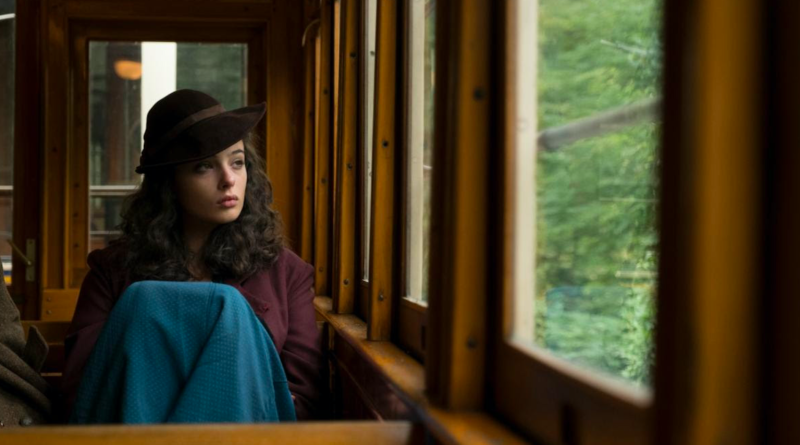INTERVIEW: Director Laura Luchetti finds the universal in ‘The Beautiful Summer’
Photo: The Beautiful Summer stars Yile Yara Vianello as Ginia. Photo courtesy of Film Movement / Provided by Foundry Comm with permission.
For director Laura Luchetti, adapting and directing Cesare Pavese’s landmark book The Beautiful Summer was a challenge she wasn’t sure was worth tackling. The source material, which consists of three novellas, is seen as a classic of Italian literature, but the writing can be difficult to adapt into a coherent story because the author jettisoned a typical plot, favoring instead long passages set within the thoughts of his main character, a teenage girl named Ginia coming of age in Turin, Italy.
“I had read the book because I found it in a bookshop,” Luchetti said in a recent Zoom interview. “It’s a famous novel by a super famous author, but it’s not one of the most read. Everybody reads other books of his, and I thought it was amazing. It was so evocative. The atmosphere was very unique, but the problem was, like with many of his books, the plot was very fragile. The plot is so light. It’s sort of about the thinking of the protagonist.”
At first, she resisted the idea of making the film, not only because of the unique nature of the text but also because of Michelangelo Antonioni’s previous adaptation of the story (specifically the third novella in the book). His Le Amiche went on to win the Silver Lion at the Venice Film Festival. “My legs were really shaking,” she said. “I was terrified, but then I loved the author and the book so much. When you are in love, you do crazy things, so the adaptation started. And we made the film.”
When Luchetti first read the character of Ginia, she thought about her own daughter, who was more or less the same age. In the original book, the character is 16 years old. In the film, Ginia (Yile Yara Vianello) is a 17-year-old dressmaker who falls in love with a dress model named Amelia (Deva Cassel), despite the disapproval of Ginia’s brother (Nicolas Maupas), according to press notes. The writer-director called Ginia’s story a universal one about a young woman desiring to be loved, touched, admired and looked at.
“There’s a time in a woman’s life where you have to deal with your own desires, and I love a story about female desire, which is something that is not tackled that often,” said Luchetti, whose other credits include Twin Flower and Hayfever. “I love to be able to tell a story about a woman trying to be someone, looking for a place in the world for herself. Ginia comes from the countryside, and she wants to make it in the town of Turin, which at the time was like New York for somebody who would come from the countryside.”
Although the story is set in the 1930s, during a time of great upheaval and pending war in Italy, Luchetti wanted to focus on how Ginia’s story still speaks to contemporary times. Her intention was to investigate the character’s journey of trying to be loved, which, in Luchetti’s mind, could speak to audience members in 2024.
“It’s a particular time of an adolescent life when you start thinking who you want to love,” Luchetti said. “Although it’s set in the past, for me, it sounded so universal, so contemporary, so modern that I accepted the challenge because that girl is many girls. I could see myself. I could see my daughter. I could see older generations.”
Luchetti added: “We had talks with the producers about setting it in the present because it’s a very small-budget film, a very small budget. It was very difficult to shoot it and put it together. Along the way, we had talks about setting it in the present, but then for me, I didn’t agree. … What was important for me was to set it in the past is because things haven’t changed that much. The theme is universal, and it’s not just a fashionable subject matter we talk about today. It’s human nature, and the problem was then as it is now, still not tackled enough, still not clear enough, especially for a young girl. … Our grandmothers had the same problems back in the day.”
By John Soltes / Publisher / John@HollywoodSoapbox.com
The Beautiful Summer, directed by Laura Luchetti, is now available on VOD and digital platforms from Film Movement. Luchetti also wrote the script with Greta Scicchitano and Mario Iannuzziello. Click here for more information.

